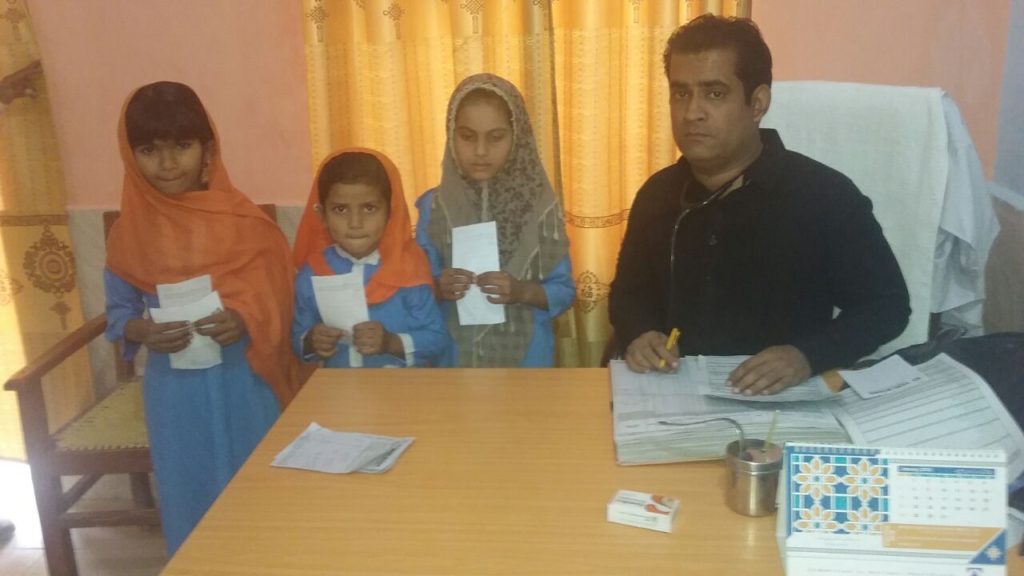Lack of proper healthcare and nutrition facilities are challenges for many rural communities in Sindh, and the remote village Haji Alan Khan Jamali in Jacobabad District was no exception before Sindh Community Mobilization Program’s (CMP) interventions as far as health and nutrition knowledge and services are concerned.
In December 2013 when CMP started its interventions in Government Girls High School, Haji Alan Khan Jamali (one of the non-construction/neighboring schools), the knowledge, attitude and practices of parents towards their children’s health and nutrition were not appropriate. This led to high absenteeism and poor learning outcomes.
CMP conducted broad-based community meetings and tried to engage women in the School Health and Nutrition Committee (SHNC). Women are largely engaged in cooking and the personal hygiene of their children, so it was appropriate to bring them on board to improve knowledge, attitude and practices. CMP, through continuous mobilization and sensitization, brought six women on as SHNC members through an SHNC restructuring activity in May 2017, and provided them training on anthropometry, health, nutrition and hygiene and later, with the assistance of the SHNC, conducted nutrition screenings of 373 children ages 5–10 to identify their nutritional status. Unfortunately, the screening data revealed 34 children to be severely malnourished and who needed nutrition supplements and proper care.
“It was a matter of sheer concern for us, when we came to know about the nutritional status of our child and the long term consequences on her physical and cognitive development,” the mother of a screened malnourished child said.
CMP involved SHNC and established their linkages with the public dispensary to get malnourished children properly diagnosed and treated. The community focal persons reached out to the Medical Superintendent of Government Dispensary under the management of People’s Primary Healthcare Initiative (PPHI) to arrange a medical camp in their village for diagnosing and treating children, especially those who were identified as malnourished during the CMP-assisted screening. The village level medical camp, organized by PPHI in collaboration with SHNC, diagnosed 100 children and provided iron, vitamins and other micronutrient supplements to 70 children.

Medical Superintendent of Government Dispensary during camp at GGHS Haji Alan Khan
In addition to diagnosis, treatment and micronutrients through PPHI’s medical camp, CMP also organized health and hygiene awareness sessions (both for parents/community members and students) to inculcate positive behaviors towards health, nutrition and hygiene.
A medical officer conducted sessions with students on personal hygiene and also diagnosed the referred children identified as malnourished during the screening.
“Before CMP’s interventions regarding nutrition and hygiene, we didn’t use to pay a lot of attention to our children’s cleanliness and we were unaware about the concept of a balanced diet, but knowledge gained through health and hygiene sessions helped us understand three food groups as well as personal and domestic hygiene,” Ms. Naseem Awan, an SHNC member, shared. She went on to say she “believe[s] this is our moral responsibility, to take good care of malnourished children to improve their nutritional status, which will eventually lead them to better physical and cognitive health.”
****
CMP is a USAID-funded program that supports the Government of Sindh’s education reform and USAID’s Sindh Basic Education Program. CMP improves school resources and encourages community support for educational reform in Sindh province while identifying and addressing primary barriers to access, particularly for female students.
RELATED READING:
Sindh Community Mobilization Program (CMP)
Gifts in Kind Spur Positive Hygiene Practices in Schoolchildren and Families



